No products in the cart.

Mentorship: The Missing Link
Reading Time: minutes remaining
Ever had a mentor? I’m not talking just about somebody you admire and look up to. Let’s be specific: ever had someone who took you under their wing for free and made your goals their goals? Who stuck with you and guided you through rough waters? The rich development experience of a mentorship is one of the most valuable, most effective, and most impactful ways a highly motivated, career-oriented dancer can develop their career. And it’s free.
Mentorships and apprenticeships are more common in the solo dance world than in the partner dance world. In West Coast Swing, the dominant form of personal dance development is private lessons: pros work regularly with keen students who have the means to pay for coaching, usually mostly on the technical and artistic aspects of WCS. But there are many other aspects of the dance world that can be difficult to navigate. Many dancers can’t afford private coaching and are left to fend for themselves, piecing things together based on peer gossip and random sound bytes heard in workshops. This independence is more of a disadvantage than a benefit: The result is masses of unguided dancers taking on positions of leadership, guessing at best practices of teaching, judging, politicking, promoting, and performing. The effects extend beyond the dancer’s own career: they impact their students, their partners, their studio, their reputations. They also risk reflecting and perpetuating a distorted version of WCS.
Mentorship provides the link between lessons and leadership.
We both have a long history with mentorship: Myles was lucky to have grown up in the dance community being informally mentored by some of the greats: Mario Robau, Robert Royston, Cody Melin, Gary McIntyre and Jojo Belmote. I had one (amazing) informal mentor swim coach and have been involved on both sides of several formal mentorship programs throughout my university career. We both have mentored several dozen mentees over the years – students who presented with uncommon talent, keen young dance students who needed guidance in life, teacher trainees who had high ambitions, and friends who decided they admired and wanted our lifestyle too. They all seem to ask the same questions in the beginning, which I thought would be appropriate to share with you.
What is a mentorship? How is it different from teaching/coaching?
A personal development relationship in which a more experienced or more knowledgeable person (mentor) helps to guide a less experienced or less knowledgeable person who wants to learn (mentee or protégé). A mentor is someone who has navigated these waters before and helps to guide the mentee as they follow the same route. Mentoring is a professional activity, a trusted relationship, a meaningful commitment. The origins of mentoring can be traced back to ancient Greece as a technique to impart to young men important social, spiritual, and personal values. Mentoring as we know it today is loosely modelled on the historical craftsman/apprentice relationship, where young people learned a trade by shadowing the master artisan. Today, an apprenticeship is an inservice training program or internship which involves either tuition for training or payment for working or both. Apprenticeships include mentoring activities, but are not one in the same. Mentors might advise on aspects of teaching, but mentorships alone are no substitute for a comprehensive teacher training program.
By the same token, our mentoring relationships are not the same as our teacher-student relationships, although there is overlap. As a teacher, we are paid to instruct; as a mentor we listen for free. As teachers, we focus on delivering the subject material, as mentors we advise the mentee on their decision making. Mentoring guides the complete person, not just the dance side of things. A mentor can assist with your career development as a competitor or as teacher, judge, promoter, or all of the above. They are someone to help you sort out the game quicker. Someone to point you in the right direction to the more effective and healthy resources and decisions. You do not need to be physically near your mentor – mentoring can be done remotely. A mentor does not have to be a higher level dancer than the mentee. Sometimes the mentor is a retired professional, or even a pro who does not compete. Because mentoring can cover a variety of aspects, it’s possible to have a mentor who is a lower level competitor than you but who mentors you like a Westie-parent on the topics of business, promotion, relationships, networking, etc.
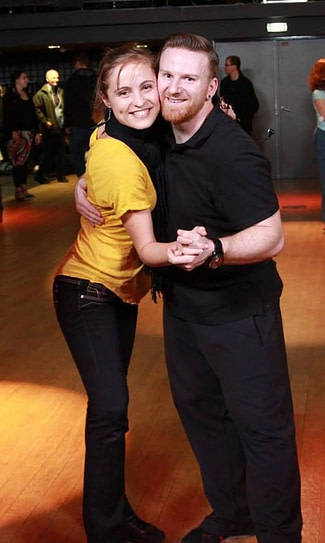
What does a WCS mentorship look like? Is it just private lessons?
No. Private lessons are a training product you need to pay for. Mentorship is free. Not all private lessons involve mentorship. Not all mentorship involves private lessons. There are two types of mentorships:
Informal
Most people have experienced some sort of informal mentoring relationship in their lives. This looks like friends or colleagues going for coffee or a beer and talking shop, but their status is inequal and the conversation is weighted towards advice. It could also take the form of “hanging out with” or even “helping out” a mentor in the hopes of shadowing and observing the mentor “in the wild”. The social contract is casual, open-ended, and flexible.
Formal
Formal mentorships are often, but not always, arranged and managed internally by a company or externally by an organization. They are more structured and designated for a fixed time period. For example, I was a mentor last year for my faculty’s alumni association mentorship program. I was matched with a 3rd year Kinesiology student who met with me a few times during the school year to discuss her projects and career plans. We submitted reports on each other and attended networking functions together. She actually came to a Westie dance once!
How do your mentorship relationships start?
On the informal side, it starts with coaching. In most cases, mentees present to us as someone who aspires to learn more. They might have “shopped around” already, or they might feel a connection with our methods and energy. They take the initiative to approach us. They ask more questions and the questions are more thorough, more thoughtful. They bring ideas to us to ask us our opinion. They think critically about what they have learned and approach us to discuss details, present a counterpoint, or delve deeper. They offer to buy us a drink at the bar and ask us to tell them a story about our history or WCS history. If we enjoy the dialogue, these conversations become more frequent and we begin to socialize outside of their regular lessons. This healthy, symbiotic relationship evolves organically and extends beyond the coaching that they pay for. I can’t speak for the priorities, habits, or preferences of other pros, but I’m sure we are not the only ones with informal mentorships. At any given time we informally mentor a handful of students beyond their private lessons, although these days the line is blurring and numbers increasing due to our SLDM teacher training program.
On the formal side, the only formal mentorship opportunity I am aware of in the WCS world is a 5 year old event in Atlanta called Sweet Side of Swing. This unique non-competitive levelled-workshop weekend is mostly known for its all-female pro staff. But it boasts a one-of-a-kind bonus: each pro (since they are hired solo) invites an Advanced/AllStar mentee to mentor for the weekend. The mentee’s job is to assist the mentor as teaching assistant, gaining invaluable mentorship and teaching experience.
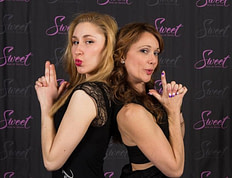
The results from this event are astounding. The pro staff unanimously agrees it is one of their most fulfilling events of their year. The mentees are beside themselves – honoured to be recognized, gracious for the opportunity, and awestruck by the learning experience. I HIGHLY recommend this event – it’s a game changer for both leaders and followers! www.sweetsideofswing.com
| We are now adding a second formal mentorship opportunity to the Westie world! We are proud to announce the brand new AllStar Apprenticeship Program. This is a year-long guided learning experience for select AllStars aspiring to transition to a professional WCS dance career. Of course, an apprenticeship is a lot more comprehensive and structured than just a formal mentorship. It includes private lessons, comp prep, teacher training, judge coaching, and business coaching. Apprentices gain actual work experience in addition to their training. Formal mentorship is included within the apprenticeship tuition. There are 4 spots available for the January 2016 intake, and qualified applicants can learn more and apply in writing here |
What can I expect from you as a mentor? What will you expect from me?
We enter into a social contract of mentorship:
As Mentors, we agree to:
- Listen to the mentee’ goals
- Offer advice and alternate perspectives
- Contribute to problem solving and brainstorming
- Protect the mentee from making catastrophic mistakes
- Use teaching/coaching techniques
- Offer feedback to the mentee
- Be open to feedback from the mentee
- Backup/support the mentee in achieving his/her goals
- Not encroach on the mentee’s work
- Respect confidentiality
- Lead by example
As the Mentee, you agree to:
- Communicate your goals & objectives
- Be honest in reporting
- Listen to our recommendations
- Respect confidentiality
- Consider our contributions
- Ask for clarification when confused
- Be open to and ask us for feedback
- Reference your source; give credit where it’s due
- Take responsibility for your own choices and actions
- Follow instructions and take direction (when appropriate)
What would I get out of a mentorship?
- Get guidance in decision making
- Fast-track yourself – enrich your learning experience and avoid wasting time
- Shadow a role model’s work
- Bounce ideas, tap into wisdom, and design a plan to achieve your goals
- Have back-up forces protecting you from making catastrophic decisions
- Have someone on your side and an attentive ear to turn to – our dance community can be surprisingly lonely
- Connect regularly with a consistent advisor who may get to know you better than a casual teacher.
- Ask probing questions: Why I do what I do/made that choice/didn’t follow that route
- Get your “foot in the door” of otherwise restricted opportunities
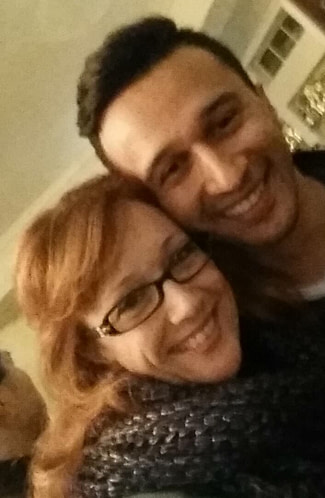
Why do you mentor? What’s your motivation? What do you get out of it?
Every time we perform, we are sharing a piece of ourselves with the audience. As artists, we thrive off of this exchange of art for audience response. The primary, most common vehicle for artists to contribute in WCS is competitions and classes. But teaching is a completely different skill than dancing. Our contribution to the dance community goes way beyond imparting our knowledge on our student base in workshops and classes. We value the developmental side of WCS as much as the performance side. We thrive off the breakthroughs, epiphanies, and growth we can help students attain (notice I did not say achievements). We are passionate about making the WCS learning process more accessible, more legitimate, more valued, more impactful, more efficient, and more infectious. This is our legacy.
Mentorship builds the next generation. We are priming our successors, helping them navigate through the rough waters that most dancers had to experience the hard way as they transition between hobbyist dancer and professional. While this challenge shouldn’t be an easy one (it’s not for everyone, and it takes work), it doesn’t need to be as turbulent or confusing as it can be without guidance.
Without mentorship, Myles says he would have struggled more as a teacher, and for longer. Mentors had Myles’ back as a teenager overwhelmed by the social distractions, and rescued him from certain social errors that would have been destructive. They helped him define his professional boundaries and standards. I wouldn’t have been as inspired to pursue coaching had it not been for my mentor. In effect, she was the catalyst to my entire career path and set my standard for quality coaching extremely high.
Even though Myles was a multi-time UCWDC World Champion when he transitioned to WCS, it took him time to figure things out. Each dance style has its own game to be played – ballroom dancers play a different game than solo dancers, etc. Our Westie world has such a unique set of quirks and convoluted maze to navigate that even a seasoned Pro dancer from a different style would still struggle. A little bit of guidance goes a long way.
A mentoring relationship can be quite rewarding for us too. We have developed strong friendships with several of our mentees and we cherish our mutual connection and support. The questions that mentees ask forces us to organize and analyze our own thoughts and methods, so we are constantly upgrading and staying current. We get a close up view of what’s confusing about the dance community to the consumers. Mentoring conversations have inspired 80% of my blog posts!
I’m psyched. Now what?
We wholeheartedly believe in constant improvement and that feedback is critical for growth. We welcome and embrace feedback from all sources, but a mentor’s feedback is gold. We are excited and inspired by being able to offer our mentees these benefits, and are intensely proud of the work they have done and goals they have achieved for themselves. We encourage more up and coming dancers to take the initiative and seek out a mentor for themselves.
Find out more about our one-year AllStar Apprenticeship Program, which includes these mentorship benefits.
How has a mentor influenced you in any area of your life?
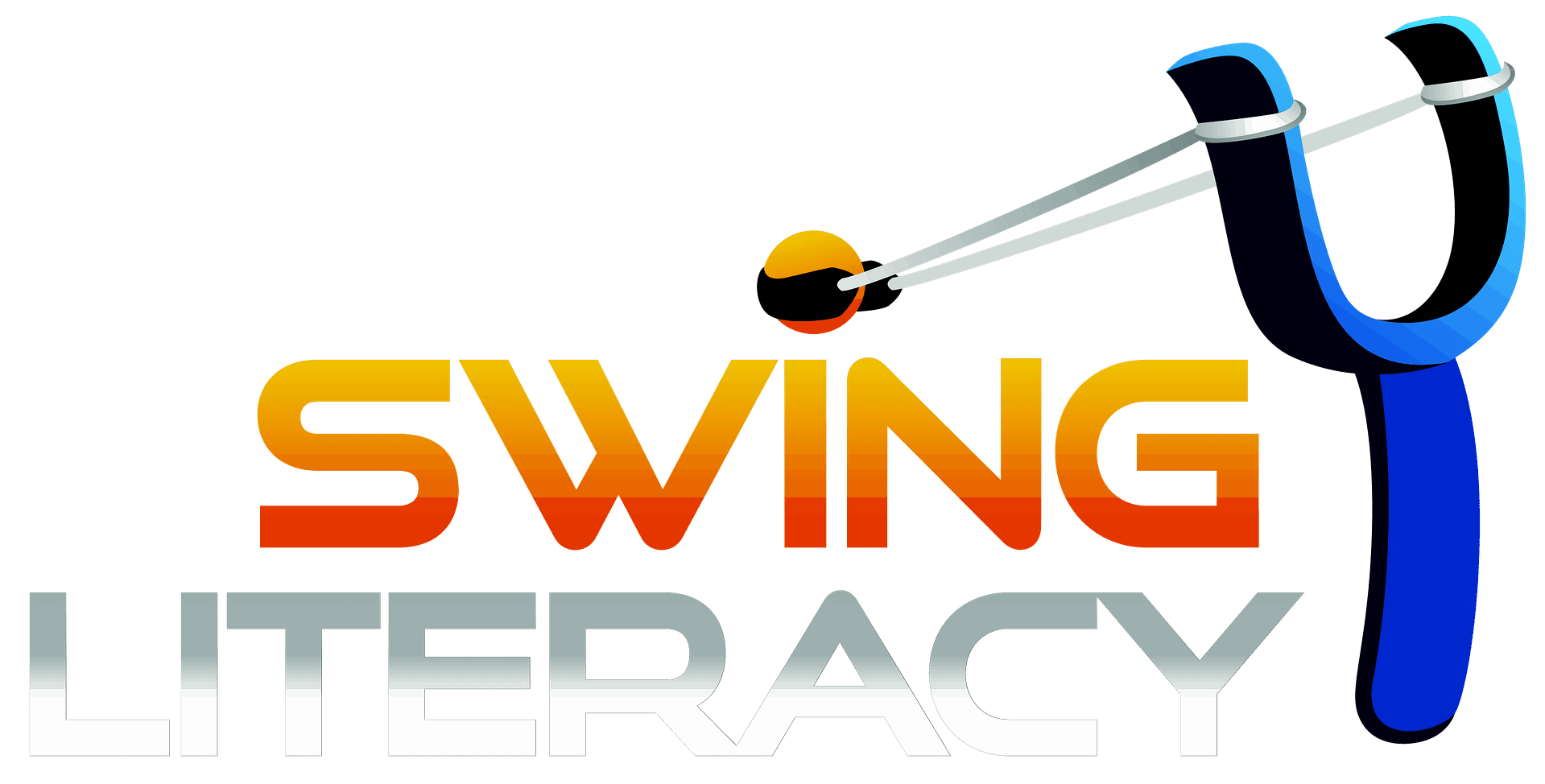
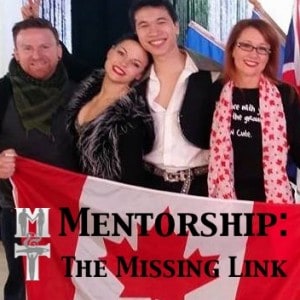 Ever had a mentor? I’m not talking just about somebody you admire and look up to. Let’s be specific: ever had someone who took you under their wing for free and made your goals their goals? Who stuck with you and guided you through rough waters? The rich development experience of a mentorship is one of the most valuable, most effective, and most impactful ways a highly motivated, career-oriented dancer can develop their career. And it’s free.
Ever had a mentor? I’m not talking just about somebody you admire and look up to. Let’s be specific: ever had someone who took you under their wing for free and made your goals their goals? Who stuck with you and guided you through rough waters? The rich development experience of a mentorship is one of the most valuable, most effective, and most impactful ways a highly motivated, career-oriented dancer can develop their career. And it’s free. the same as our teacher-student relationships, although there is overlap. As a teacher, we are paid to instruct; as a mentor we listen for free. As teachers, we focus on delivering the subject material, as mentors we advise the mentee on their decision making.
the same as our teacher-student relationships, although there is overlap. As a teacher, we are paid to instruct; as a mentor we listen for free. As teachers, we focus on delivering the subject material, as mentors we advise the mentee on their decision making. 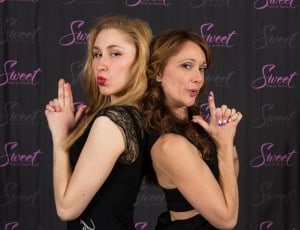 On the formal side, the only formal mentorship opportunity I am aware of in the WCS world is a 5 year old event in Atlanta called Sweet Side of Swing. This unique non-competitive levelled-workshop weekend is mostly known for its all-female pro staff. But it boasts a one-of-a-kind bonus: each pro (since they are hired solo) invites an Advanced/AllStar mentee to mentor for the weekend. The mentee’s job is to assist the mentor as teaching assistant, gaining invaluable mentorship and teaching experience. The results from this event are astounding. The pro staff unanimously agrees it is one of their most fulfilling events of their year. The mentees are beside themselves – honoured to be recognized, gracious for the opportunity, and awestruck by the learning experience. I HIGHLY recommend this event – it’s a game changer for both leaders and followers!
On the formal side, the only formal mentorship opportunity I am aware of in the WCS world is a 5 year old event in Atlanta called Sweet Side of Swing. This unique non-competitive levelled-workshop weekend is mostly known for its all-female pro staff. But it boasts a one-of-a-kind bonus: each pro (since they are hired solo) invites an Advanced/AllStar mentee to mentor for the weekend. The mentee’s job is to assist the mentor as teaching assistant, gaining invaluable mentorship and teaching experience. The results from this event are astounding. The pro staff unanimously agrees it is one of their most fulfilling events of their year. The mentees are beside themselves – honoured to be recognized, gracious for the opportunity, and awestruck by the learning experience. I HIGHLY recommend this event – it’s a game changer for both leaders and followers! 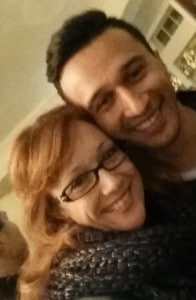 Get guidance in decision making
Get guidance in decision making
I love it!! I was watching Jen Malcolm dance the entire weekend at The Open! And I kept saying to myself ” Who Is She?” I did eventually tell her that “I love her dancing.” We often think these thoughts and never let people know about them. I was excited to see the Rising Star performance and super excited about the results. I’m not surprised to now see that two amazing dancers, coaches, and choreographers that I admire have a hand it it all. Tessa Cunningham Munroe and Myles Munroe! Nice……..:)